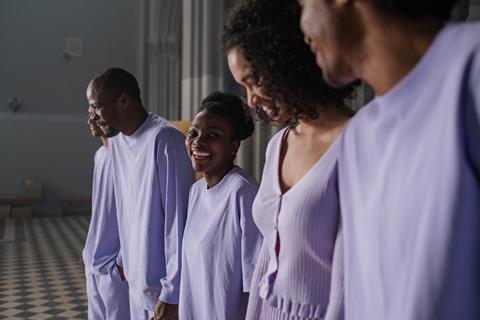In our brand-new series, Marcia Dixon MBE, reveals the history of the Pentecostal movement in the UK

I am a child of Britain’s black Pentecostal Church movement. I became a member as a teenager when I gave my heart to Christ during a youth crusade hosted by the New Testament Assembly (NTA), a prominent Pentecostal denomination here in Britain.
Many people associate Pentecostal churches with the branch of Christianity where people sing lively songs, clap their hands and wear colourful clothes. While this is one aspect of the black Pentecostal Church it’s much, much more than that.
First and foremost, the Black Church, as it is so-called, is a place where the gospel is preached, people are discipled and encouraged to serve God, practical support is given during life’s hard times and people are taught to rely on God. I remember attending all-night prayer meetings during my youth; these still take place today.
Many people associate Pentecostal churches with the branch of Christianity where people sing lively songs, clap their hands and wear colourful clothes…it’s much, much more than that
Britain’s black churches should be viewed as transformation centres. Go to any church on a Sunday and those sitting in the pews could include former convicts and gang members, ex-prostitutes, highflyers, domestic violence survivors, the broken hearted…the list could go on. They represent changed lives.
A history of British Pentecostal churches
I came to faith in the NTA, which, like many other Pentecostal churches, was started by Caribbean migrants who came to Britain between the late 1940s and 1971 and are known as the Windrush Generation.
They came to the UK at the invitation of the British government to work, and build a new life for themselves and their families. Some had been members of the Anglican, Baptist, Methodist and Catholic churches in their native islands but found, when they attended their UK counterparts, that they weren’t accepted.
Some were even told not to step back inside the church they had just visited. These ‘rejects’ found a spiritual home in house churches, started by men and women who were keen to share the gospel with their fellow Caribbean migrants.
They went on to found denominations like the New Testament Church of God, the Church of God of Prophecy, Bethel United Church of Jesus Christ, Church of God in Christ and the New Testament Assembly. These churches provided spiritual refuge and support for the burgeoning Caribbean community as they got used to life in Britain, which many found hard, challenging and racist.
Most of these denominations started small, meeting firstly in homes, progressing to rented halls until they were able to purchase their own buildings to house their growing congregations.
The black Pentecostal Church – so-called because the majority of attendees are from the black community – has become the most enduring institution. Not only has it helped to transform people’s lives, it has also played a part in raising educational aspiration and entrepreneurship among its congregations and contributed to the growth of Britain’s black middle class.
It has also served as a training ground for aspiring leaders, speakers, singers, musicians and creatives, helped members build resilience to deal with life’s challenges and inspired many to serve their communities selflessly.
The arrival of migrants from West Africa in the 1980s onwards added a new and exciting dimension to the black Pentecostal Church. They built on the foundation laid by Caribbean Pentecostals and did everything on a bigger scale, which led to the rise of Pentecostal mega churches – congregations with 1,000 people or more – and large churches like the Redeemed Christian Church of God, which holds bi-annual prayer services for its members at the London Excel Centre, attracting up to 40,000 people a time.
The changing face of the black Church
Growing up in a Caribbean family during the 70s, I knew very little about the black Church. I attended the Sunday school at the United Reformed Church that was a two-minute walk from my home in east London.
My Sunday school teacher was a lovely English lady who was wheelchair-bound. It was obvious she loved Jesus and us children. However, by the time I became a teenager, I decided that God didn’t exist – a view that changed when I was 15, when I encountered God for myself at a youth crusade hosted by the New Testament Assembly, a prominent Pentecostal denomination here in Britain.
I have become who I am because of my decision to become a Christian. My work as a writer, firstly as a religious journalist at The Voice newspaper, and latterly as editor of Keep the Faith magazine, has given me a front row seat at the major developments and changes the Pentecostal community has experienced over the past four decades.
Some [Windrush Generation] had been members of the Anglican, Baptist, Methodist and Catholic churches in their native islands but found, when they attended their UK counterparts, that they weren’t accepted
For instance, when I started my Christian journey women couldn’t wear make-up, jewellery or trousers. Church members couldn’t go to parties or the cinema. And, of course, in line with scripture, there was no sex before marriage.
Many young people found the rules too strict. Some left because they were unable to follow the rules. Most of these strictures (apart from the no sex before marriage one) have all but disappeared, as churches realised they had possibly made the ‘narrow road’ too narrow to follow.
Also, while the current crop of ministers will mostly have studied theology or attended Bible school, this was not necessarily the case for the men and women who started the black Pentecostal Church movement in the 50s and 60s. And whereas black churches could once have been described as insular, with members’ lives revolving around them, this is not the case today. There is much greater engagement with wider society.
Like all religious institutions, the black Pentecostal Church has its critics who have accused it of not attracting the young, sometimes being a bit cultish and providing a place for the unscrupulous to wield influence. However, it is my opinion that these criticisms are overshadowed by the good that these churches do in the community, the people they help and the lives that are transformed through the preaching of the gospel.
I’m glad I made that decision to follow Christ all those years ago. And I’m glad I came to faith in the black Pentecostal Church. I wouldn’t change that for anything.

































No comments yet